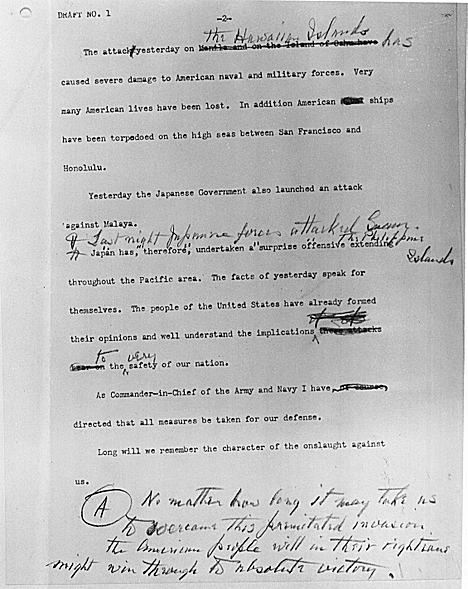


In Hughes’s “Ballad of Roosevelt,” which appeared in the New Republic in 1934, the poet criticized the unfulfilled promises that FDR had made to the poor. Although he did not join the Communist Party, he spent a year in the Soviet Union and published his works in magazines sympathetic to liberal, socialist, and Communist causes. Langston Hughes, a playwright, poet, and novelist, became a socialist in the 1930s. African Americans who supported left-wing parties, however, were more likely to be critical. On the other hand, Roosevelt won the hearts and the votes of African Americans in unprecedented numbers. Nicknamed the 'Date of Infamy Speech,' it is one of the most famous political speeches of the 20th century. The sound recording was made available by the National Archives of the United States. on Monday, December 8, 1941, in Washington, D.C. On the one hand, Roosevelt never endorsed anti-lynching legislation he accepted segregation and disenfranchisement and he condoned discrimination against blacks in federally funded relief programs. This speech was made by President Franklin Delano Roosevelt to a Joint Session of Congress at 12:30 p.m. On December 8, 1941, the day after the Japanese attacked Pearl Harbor, President Franklin Roosevelt delivered this Day of Infamy Speech.

Roosevelt presents something of a paradox. R.2.2 Analyze the central idea(s) of speeches and essays from the. "The relationship between African Americans and Franklin D. The reading and writing standards have been written in such a way that they progress.


 0 kommentar(er)
0 kommentar(er)
